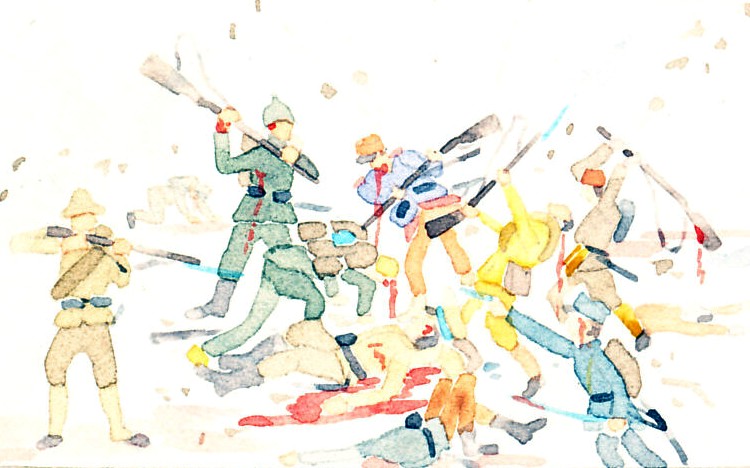Headstone of an unknown soldier of the Royal Dublin Fusiliers, Delville Wood Cemetery. Union of South Africa troops began the assault at Delville Wood on July 15, 1916. It was finally taken in September. On the headstone is superimposed the poem 'To My Daughter Betty, the Gift of God' by Lieutenant Tom Kettle of the Royal Dublin Fusiliers, killed in action on September 9, 1916 at Guillemont, France, in the Battle of the Somme. He has no known grave. © 2013 John M. Shea

To My Daughter Betty, the Gift of God
In wiser days, my darling rosebud, blown
To beauty proud as was your mother's prime,
In that desired, delayed, incredible time,
You'll ask why I abandoned you, my own,
And the dear heart that was your baby throne,
To dice with death. And oh! they'll give you rhyme
And reason: some will call the thing sublime,
And some decry it in a knowing tone.
So here, while the mad guns curse overhead,
And tired men sigh with mud and couch and floor,
Know that we fools, now with the foolish dead,
Died not for flag, nor King, nor Emperor,
But for a dream, born in a herdsman's shed,
And for the secret Scripture of the poor.
— Tom Kettle
In the field, before Guillemont, Somme, 4 September 1916
Other views:
Front
